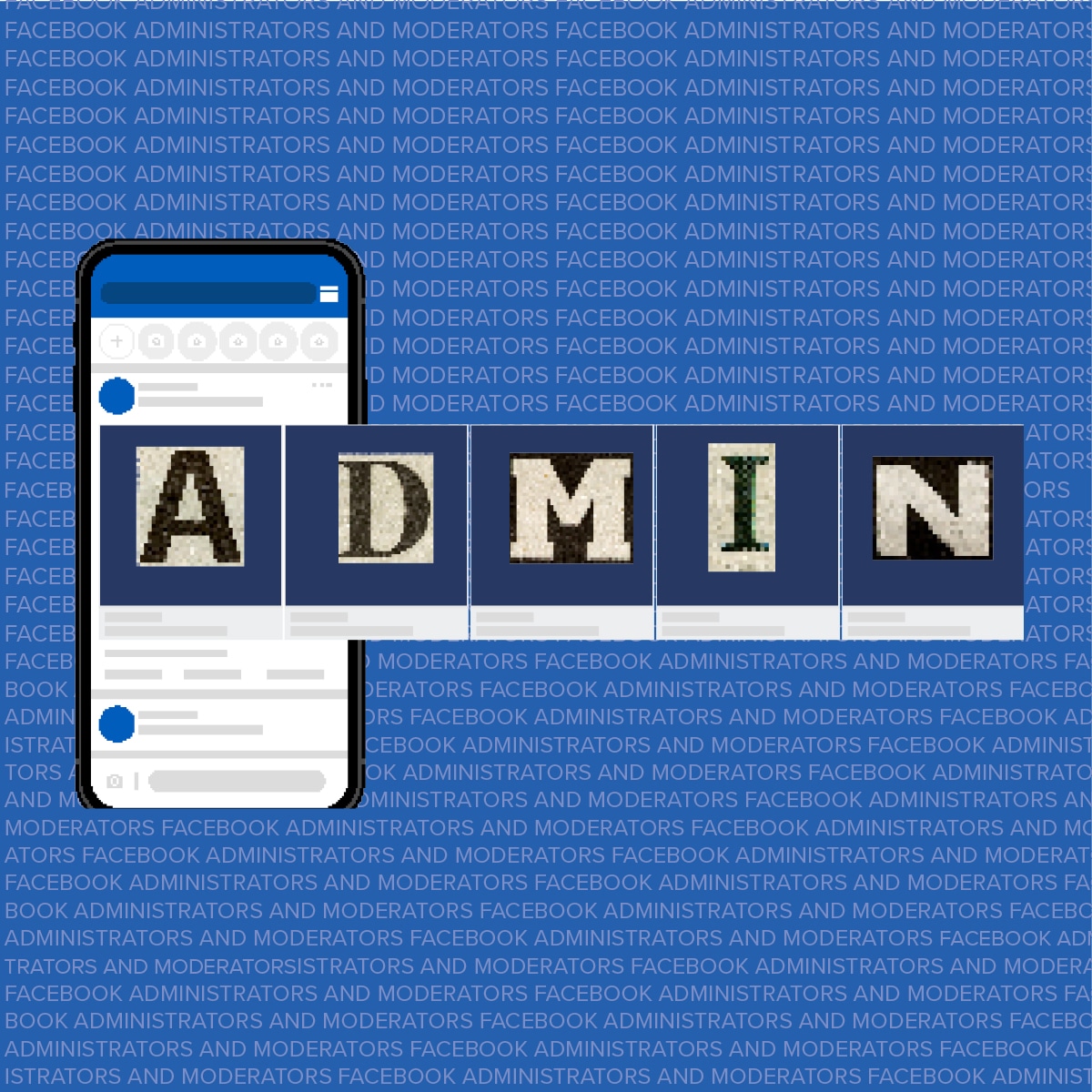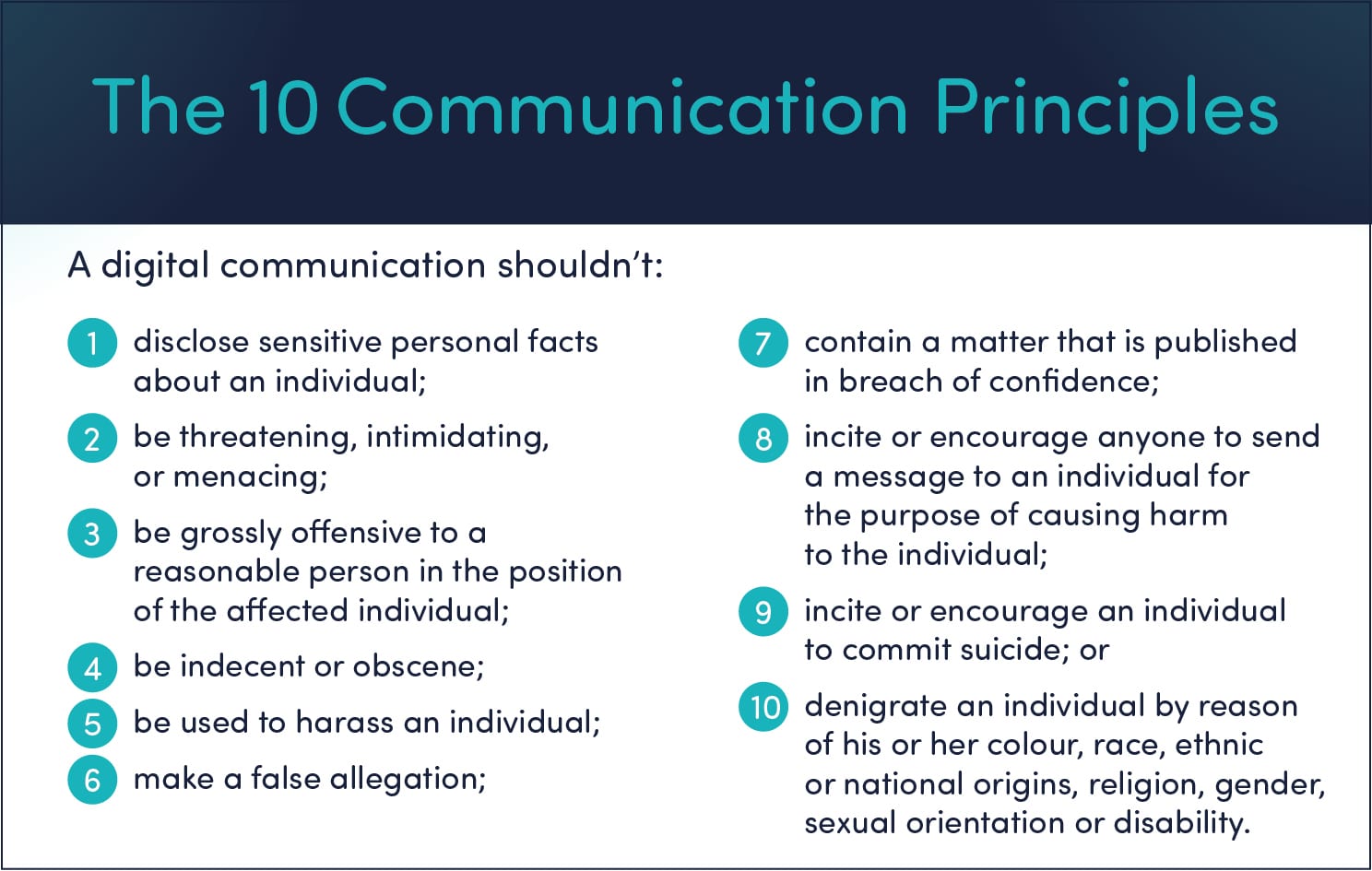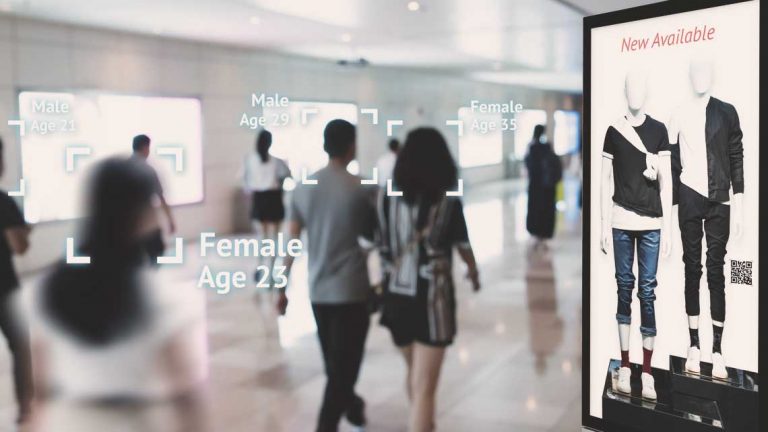Managing a Facebook Group
Running and supporting an online community on a Facebook Group page can be a rewarding and sometimes challenging task. We’ve put our best advice together to help Facebook Group Moderators and Administrators learn about some of the common online safety challenges reported to Netsafe and the ways you can support your Facebook Group members to…

Running and supporting an online community on a Facebook Group page can be a rewarding and sometimes challenging task. We’ve put our best advice together to help Facebook Group Moderators and Administrators learn about some of the common online safety challenges reported to Netsafe and the ways you can support your Facebook Group members to handle these incidents.
ESTABLISHING FACEBOOK GROUP RULES
Facebook Groups are a place for people to share their interests that can either be set to private or public mode. Group rules set out how members should treat others and how they expect to be treated. Clear rules help Facebook Group Moderators and Administrators identify concerning behaviour and what consequences members may expect if they go against the rules.
Some common rules include:
- Being clear on how the Facebook Group will be used
- Explaining what kinds of information, topics and content can be shared
- Reinforcing that bullying, abuse and harassment will not be tolerated
- Implementing a no self-promotion or spam policy
- Treating each other with respect and courtesy
As an admin or moderator, you may also want to outline some of the consequences for breaching rules e.g. if any actions would lead to immediate bans or permanent bans (also known as a permaban). If your group has several rules, it may be useful to put this in a separate document in the About section as you can only add 10 rules.
Depending on the nature of your Facebook Group it may also be worth identifying who moderates the page. If your group is associated with an external organisation, you could also include an external contact (e.g. an email address or weblink) for people who want more details.
You can find more advice on how to write group rules on Facebook’s website.
BULLYING & HARASSMENT
Online bullying can take many different forms including trying to embarrass someone, spreading sensitive information or repeatedly sending unwanted messages. As a Facebook Group Moderator or Administrator, it’s important to familiarise yourself with Facebook’s Community Standards. This information explains what content is and isn’t allowed and helps you understand why particular content can be removed by Facebook. Groups that consistently violate these standards may be removed by Facebook from its platform.
Netsafe offers a free and confidential service to help people experiencing online bullying, abuse and harassment. We can also explain how the Harmful Digital Communications Act (HDCA) may apply to you or people in your Facebook Group. The HDCA helps people dealing with serious or repeated harmful digital communications and lays out 10 communication principles that guide how to communicate online.
If someone is being bullied or feels like they are being bullied, either in the group or outside of it by a member there are a few things you can do:
- Don’t wait for the person to come to the admins or moderators. If you see bullying or bad behaviour, reach out to the affected people and check on their wellbeing. Take appropriate action to mitigate potential harm (e.g. lock posts, turn off open submissions).
- Get help. Let the person affected know that Netsafe offers free expert incident advice and support to help in situations like this.
- Save evidence: Offer to help capture electronic evidence. Find out how here.
- Let people know if their behaviour violates your group’s rules. If their actions will result in a ban in your group, let them know.
MANAGING FACEBOOK GROUP COMPLAINTS
Not everyone is going to be happy with your decisions or what is happening in the group. It’s worth spending time developing a complaints review process that allows you to track feedback. It doesn’t have to be super-formal or even long – just make sure that it’s noted down so that everyone receives the same treatment.
To encourage your members to raise issues in a productive way:
- Explain clearly how members can approach you if they disagree with or have feedback about a moderating decision e.g. is there a particular admin they should go to?
- Explain what behaviour will not be tolerated when making a complaint e.g. abusive language towards a moderator or multiple messages about a single issue
- Ask members to provide enough information to assess what has happened e.g. links/screenshots to the content involved, a description of why they have an issue with the decision
- Explain your decisions clearly. Acknowledge the member’s feedback, even if you disagree.
MANAGING VIRAL CONTENT
For some moderators and admins, it is a major win if their Facebook Group goes viral. Sometimes this can be for amazing content that speaks across demographics – and other times this can be because of inappropriate content. Managing viral content can be tricky and is often unplanned.
There are some things to consider if your Facebook Group goes viral:
- Consider your options – If you’re struggling to keep up with moderating, look at options like turning off comments or adding approval requests for new members
- Be transparent – Let members know if you’ll be implementing any changes to help manage what has happened
- Get help – There may be experienced admins and moderators from other groups who can pitch in
- Celebrate your success – If someone’s amazing post or photo has gone viral for all the right reasons, congratulate your members and your team for the amazing community that you’ve created
AVOIDING SCAMS
Netsafe gets scam reports daily. We receive many reports from people who have bought items off ‘buy sell’ or ‘neighborhood’ groups, only to be blocked once they’ve received payment – you’ve probably heard of these scams if you run a group where people sell or make trades. Some reporters think that seeing a photo ID and a New Zealand bank account is enough to provide protection but many of these scammers use stolen IDs or photos of IDs sent in previous scams.
Our best advice for completing safe trades over Facebook:
- Never give your photo ID as this could be used for identity theft
- Try to meet face-to-face to inspect the item and collect the payment
- If that isn’t possible, use a service like PayPal or list the item on TradeMe so that you have access to buyer/seller protection
If someone is involved in a Facebook Trading Scam ask them to:
- Report the profile and any posts to Facebook directly
- Report the profile and any posts to group admins so that you can act (this might involve warning or banning accounts)
- Report what has happened to Netsafe using our online reporting form
Read more advice on our page on Facebook Trading Scams.
CONTACT NETSAFE
If you’re concerned about the immediate safety of you or someone else, please call 111. If you want help or expert incident advice, you can contact us. Our service is free, non-judgemental and available seven days a week.
- Email [email protected]
- Call toll free on 0508 NETSAFE (0508 638 723)
- Online report at netsafe.org.nz/report
- Text ‘Netsafe’ to 4282
KEEP UP TO DATE
Follow us on social media and sign up to our newsletter for alerts, news and tips.








